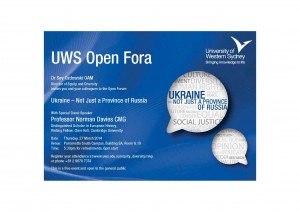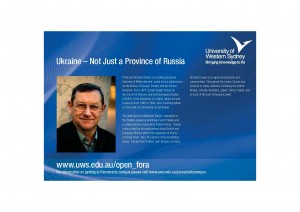Monthly Archives: March 2014
2014-03-10 World must act on North Korea rights abuse, says UN report
World must act on North Korea rights abuse, says UN report
Michael Kirby: “Testimony which tells the stories of the prison camps… of the babies who are born stunted… of the abductions, of the public executions”
The international community must act on evidence of widespread crimes against humanity in North Korea, say the authors of a long-awaited UN report.
A panel of experts mandated by the UN’s Human Rights Council said North Koreans had suffered “unspeakable atrocities” and those accused must face justice.
The panel heard evidence of torture, enslavement, sexual violence, severe political repression and other crimes.
North Korea refused to co-operate and has rejected the report’s conclusions.
Testimony to the panel included an account of a woman forced to drown her own baby, children imprisoned from birth and starved, and families tortured for watching a foreign soap opera.
The UN commission said leader Kim Jong-un had failed to respond to an advance copy of the report, and a letter which warned him he could be held personally responsible for abuses.
Michael Kirby, chairman of the independent Commission of Inquiry, said the report “calls for attention from the international community”.
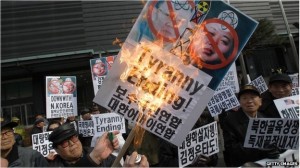 The North’s leaders are frequent targets of angry protests in the South
The North’s leaders are frequent targets of angry protests in the South
“At the end of the Second World War so many people said ‘if only we had known… if only we had known the wrongs that were done in the countries of the hostile forces’,” he said.
“Well, now the international community does know… There will be no excusing of failure of action because we didn’t know.”
“Too many times in this building there are reports and no action. Well this is a time for action.”
‘Unspeakable atrocities’
The BBC’s Imogen Foulkes in Geneva says the report is one of the most detailed and devastating ever published by the United Nations.
Among the reports findings are:
that there is “an almost complete denial of the right to freedom of thought, conscience and religion” in North Korea
there are “entrenched patterns of discrimination”, rooted in the state-assigned class system, which affect every part of life
discrimination against women is “pervasive in all aspects of society”
the state “has used food as a means of control over the population” and had deliberately blocked aid for ideological reasons, causing the deaths of “hundreds of thousands” of people
“hundreds of thousands of political prisoners” have died in “unspeakable atrocities” in prison camps in the past 50 years
security forces “systematically employ violence and punishments that amount to gross human rights violations in order to create a climate of fear”
“In many instances, the violations of human rights found by the commission constitute crimes against humanity,” says the report.
“These are not mere excesses of the state; they are essential components of a political system that has moved far from the ideals on which it claims to be founded.”
It says the UN “must ensure that those most responsible for the crimes against humanity” are held accountable, through a referral to the International Criminal Court, or a UN tribunal.
Responding to the findings, North Korea said it “categorically and totally rejects” the report.
Its response came in a two-page statement sent to Reuters from its diplomatic mission in Geneva.
“The DPRK [North Korea] once again makes it clear that the ‘human rights violations’ mentioned in the so-called ‘report’ do not exist in our country.”
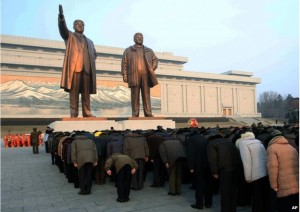 The cult of personality surrounding the Kim family is as strong as ever in North Korea
The cult of personality surrounding the Kim family is as strong as ever in North Korea
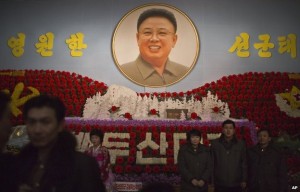 North Korea commemorated the birthday of Kim Jong-il, who died in 2011, on Sunday
North Korea commemorated the birthday of Kim Jong-il, who died in 2011, on Sunday
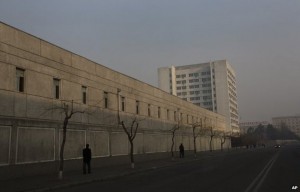 Away from the choreographed celebrations, images showed few people on the streets of Pyongyang
Away from the choreographed celebrations, images showed few people on the streets of Pyongyang
North Korea declined to participate in the panel’s investigation.
Mr Kirby said there was “a very good way to answer the many charges and complaints – and that is to allow the door to be opened” to the international community so they could see the situation for themselves.
For years, North Korean defectors have detailed harrowing accounts of life in the secretive country, with tens of thousands of political prisoners in camps and civilians living under a system of neighbourhood surveillance where they are encouraged to denounce each other.
Although this information has been in the public domain for years, the panel’s inquiry is the highest-profile international attempt to investigate the claims.
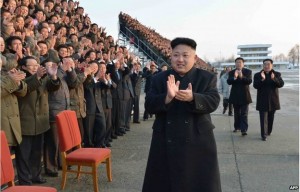 Since Kim Jong-un took over, his regime has threatened nuclear war and conducted a deadly purge
Since Kim Jong-un took over, his regime has threatened nuclear war and conducted a deadly purge
Jared Genser, an international human rights lawyer who has campaigned to stop crimes against humanity in North Korea, said the findings were both ground-breaking and unremarkable.
“They’re ground-breaking in that it’s the first time that the United Nations as an institution has found that crimes against humanity are being committed against the people of North Korea,” he said.
“Of course, it puts a huge burden on the United Nations to then take the next set of steps.
“But of course it’s also unremarkable in the sense that those of us who have worked on North Korea human rights for many, many years are aware of the sheer weight of evidence coming out of North Korea over decades now… And so the real question now is, what next?”
China, North Korea’s only ally, would be likely to block any attempt to refer the North to the International Criminal Court.
And an ad-hoc tribunal, like those set up for Rwanda, Sierra Leone or Cambodia, would appear unlikely without co-operation from elements within the country.
See report: COI DPRK Report 17_02_14_nkorea_unreport
